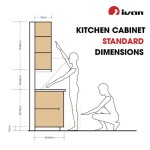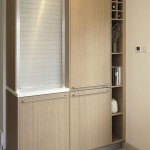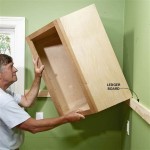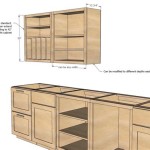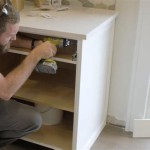Essential Aspects of Laminate Kitchen Cabinet Repair
Laminate kitchen cabinets are a popular choice due to their affordability, durability, and versatility. However, even the best-made cabinets can suffer from wear-and-tear over time, leading to scratches, dents, or chips. If your laminate cabinets have seen better days, there's no need to replace them right away. With proper repair techniques, you can restore their beauty and functionality.
1. Assessing the Damage
Before attempting any repairs, it's important to assess the extent of the damage to your laminate cabinets. Determine the type of damage (scratches, dents, chips, etc.), its severity, and the size of the affected area. This will help you choose the appropriate repair method and materials.
2. Gathering the Necessary Materials
Once you've assessed the damage, gather the necessary materials for the repair. For minor scratches and surface damage, a laminate repair kit should suffice. This typically includes a resin filler, a colorant, a mixing tool, and an applicator. For more severe damage, such as dents or chips, you'll likely need additional materials like wood filler, sandpaper, and a putty knife.
3. Surface Preparation
Before applying any repair materials, it's essential to prepare the surface of the damaged area. Clean it thoroughly with a damp cloth to remove any dirt or debris. For deep scratches or dents, sand the affected area lightly with fine-grit sandpaper to create a smooth surface for the repair material to adhere to.
4. Repairing Minor Scratches
For minor scratches, apply a small amount of the resin filler from the repair kit directly into the scratch using the applicator. Use a colorant if necessary to match the color of your cabinets. Allow the filler to dry completely, then polish it with a soft cloth to blend it seamlessly with the surrounding surface.
5. Repairing Dents and Chips
To repair dents or chips, fill the damaged area with wood filler using a putty knife. Smooth out the filler and allow it to dry. Once dry, sand the repaired area until it's flush with the surrounding surface. Apply a laminate repair kit or touch-up paint to match the color of your cabinets.
6. Touch-ups and Refinishing
Once the repairs are complete, apply touch-ups or refinishing to enhance the appearance of your cabinets. Use a touch-up pen or paintbrush to cover any small imperfections or color mismatches. If necessary, apply a clear laminate sealer to protect the repaired area and restore the glossy finish of your cabinets.
7. Preventive Measures
To prevent future damage to your laminate kitchen cabinets, consider implementing the following preventive measures:
* Use cutting boards to avoid scratching the surface of your cabinets. * Clean spills or stains promptly to prevent discoloration or damage. * Avoid using abrasive cleaners or sponges that can damage the laminate finish. * Protect your cabinets from direct sunlight, as prolonged exposure can cause fading. * Regularly inspect your cabinets for any signs of damage and address them promptly.
How Do I Fix Laminate Cabinets Hometalk

How Do You Paint Laminate Kitchen Cupboards When They Re Ling Hometalk

My Laminate Drawers And Doors Are Ling Ing Help Hometalk

Painting Laminate Kitchen Cabinets Cuckoo4design

Painting Laminate Kitchen Cabinets Cuckoo4design

How To Touch Up Chipped Cabinets With A Paint Pen Exquisitely Unremarkable

Discover Everything You Need To Know About Cabinet Repair

How To Repair Ling Veneer On Particle Board Cabinets Handhills

How Can I Repair Ling Kitchen Cabinet Laminate Hometalk

Discover Everything You Need To Know About Cabinet Repair

